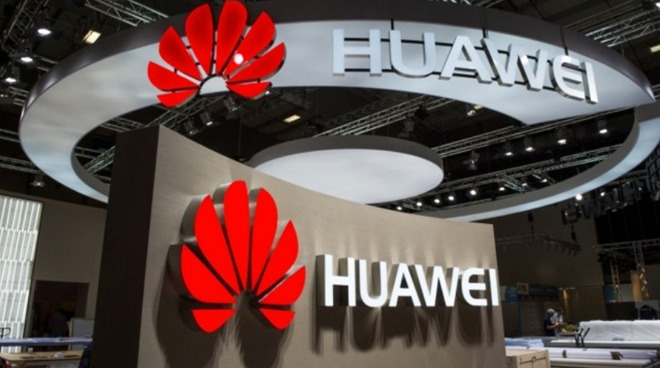Huawei was working with Google to take on Apple's HomePod and Amazon's Echo smart speaker range with a jointly-produced device, a report claims, but the close collaboration came to an abrupt end in May, just before restrictions were placed on Huawei by President Donald Trump and the U.S. government.
The Chinese electronics firm was working with the search giant on the project, which would have seen Huawei manufacture a smart speaker that was powered by the Google Assistant, it is claimed. The speaker would have been intended for markets outside of China, with the United States being a major target for the product.
"We worked on this project with Google for a year and made a lot of progress. Then everything stopped," an unnamed Huawei employee advised to The Information. The stoppage was likely due to the sudden restrictions laid onto Huawei by the Trump administration, which stopped US companies from using Huawei equipment as well as limiting what Huawei could acquire from US-based firms.
It is understood Huawei's plans were to reveal the new speaker during September's IFA trade show in September, but it wouldn't be the first from the company. In 2018, Huawei launched the AI Cube, a two-in-one smart speaker with Alexa built in, as well as 4G routing capabilities.
The restrictions were put in place under the guise of Huawei being a national security risk. Reports in May around the time of the action suggested Huawei installed a backdoor in the network of an unnamed telecommunications firm, with its likely links to the Chinese government potentially allowing it and other undiscovered backdoors that may exist to be used for spying.
Despite the suspicions of security agencies, Huawei has repeatedly denied it has done anything wrong. The company has even cited Apple as its privacy role model, in relation to how it protects user data.
Part of the impact of the restrictions was Google's termination of Huawei's Android license, preventing its smartphones from accessing the Google Play Store and accessing mainstream Google apps like Gmail, YouTube, and Chrome. While Huawei could use the Android Open Source Project, there has also been the suggestion it could come up with its own operating system and accompanying ecosystem.
Before the restrictions were introduced, Google and Huawei were also discussing working together in other areas, including adding Android Auto compatibility to the firm's smartphones. Since the change in the relationship, Huawei has reportedly only interacted with Google via meetings and calls accompanied by lawyers, present to ensure compliance with the sanctions.
While there have been motions to relax some of the restrictions on Huawei, as well as a current temporary reprieve, it may not necessarily allow Google and Huawei to work together the same way as before. Huawei has worked to find alternate ways to produce its products that do not rely on suppliers based in the United States, such as producing its own components and other important technologies, minimizing its exposure to further US governmental interference.
 Malcolm Owen
Malcolm Owen

-m.jpg)






 Oliver Haslam
Oliver Haslam
 Thomas Sibilly
Thomas Sibilly
 Marko Zivkovic
Marko Zivkovic

 Wesley Hilliard
Wesley Hilliard

 Andrew Orr
Andrew Orr



-m.jpg)






30 Comments
Huawei+Google.
Wow, what could go wrong?
Scary sh**.
It was a Huawei speaker incorporating Google Assistant from what's being reported. It was not something Google-branded. Kinda like Sony and LG and Samsung incorporating Google Assistant in some of their smart (!) devices.
Only Huawei could release a cylindrical product and call it a "Cube". Genius.
Was it the IAN-WAMD Box?
(I am not worried about my data)
This is Ian. I will be helpful. I will be collecting every little thing about you... to be helpful. Is that the new Top Gun movie I hear playing in the background? Turning on camera. Movie confirmed. I recommend wearing a condom when doing that... A copy of
IAN. Shut the @#$& up. I’m kind of busy here!